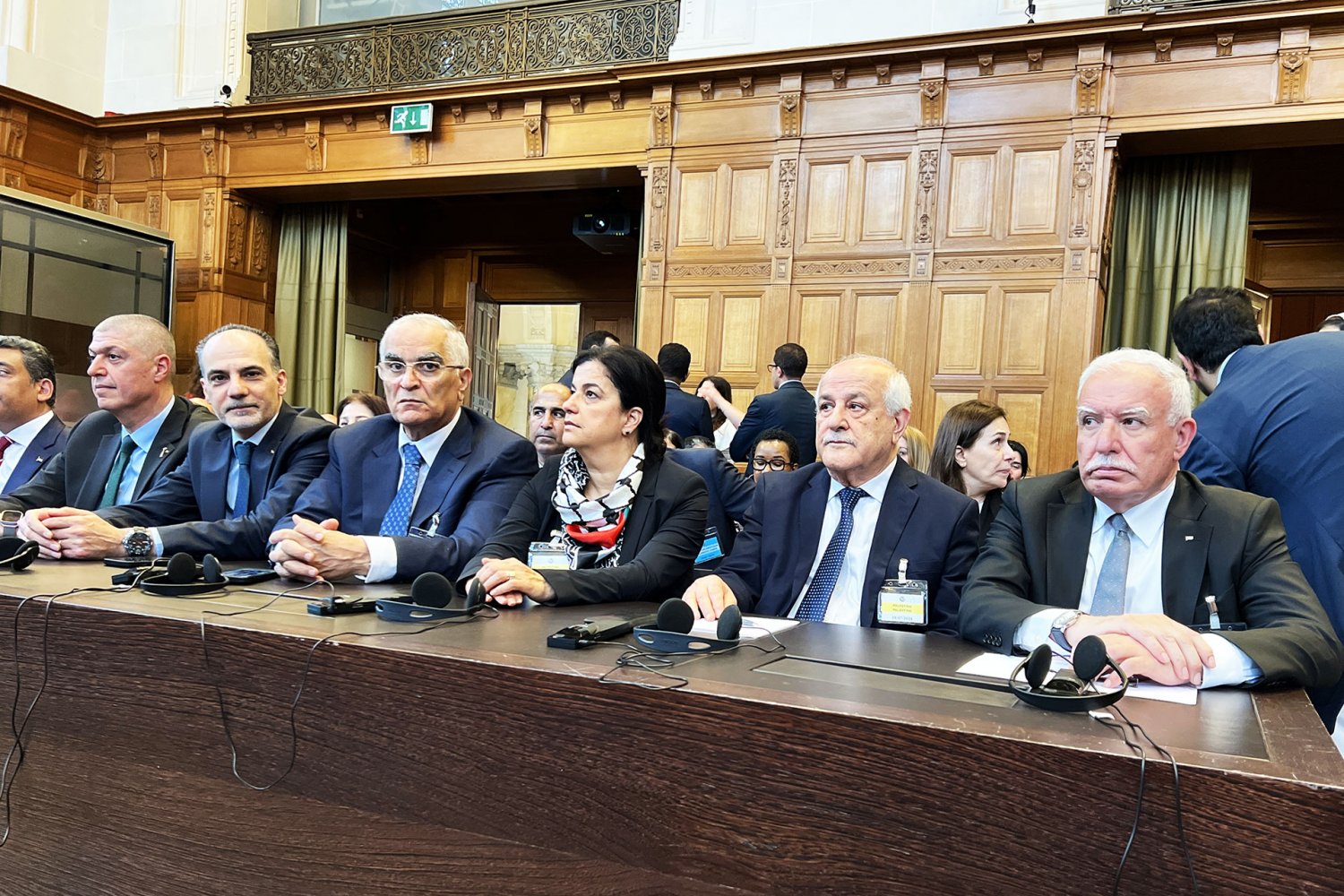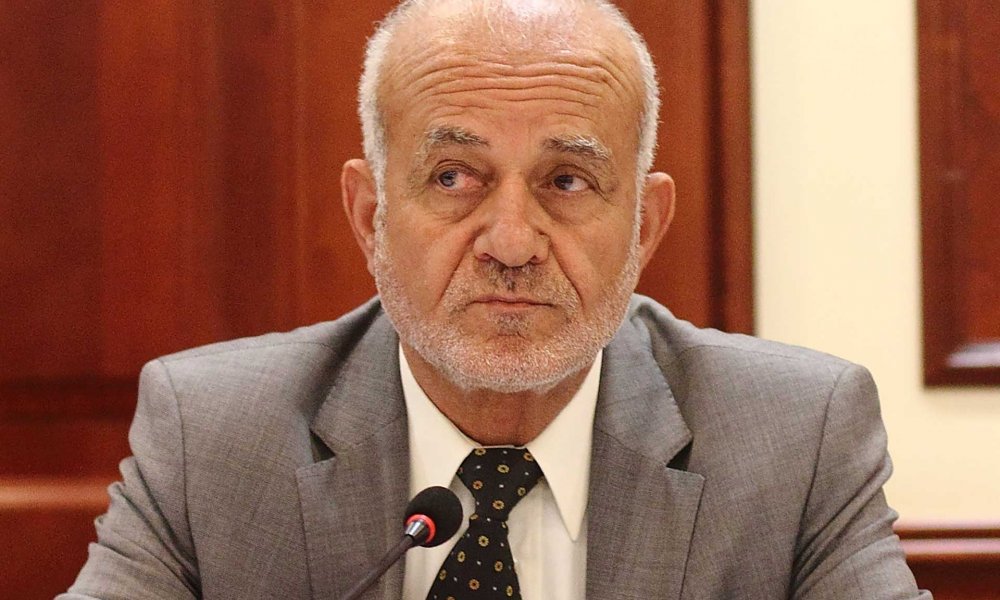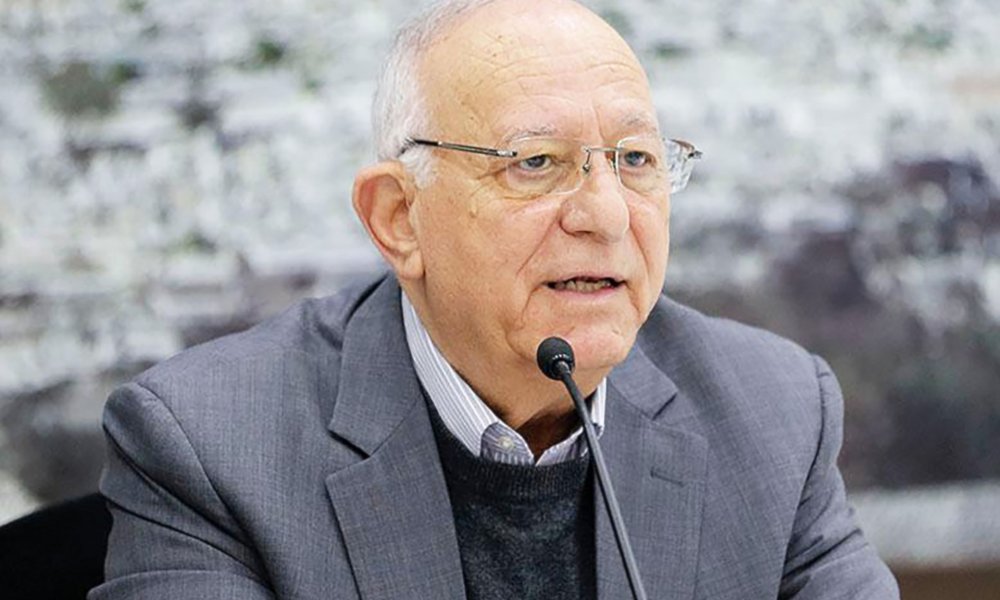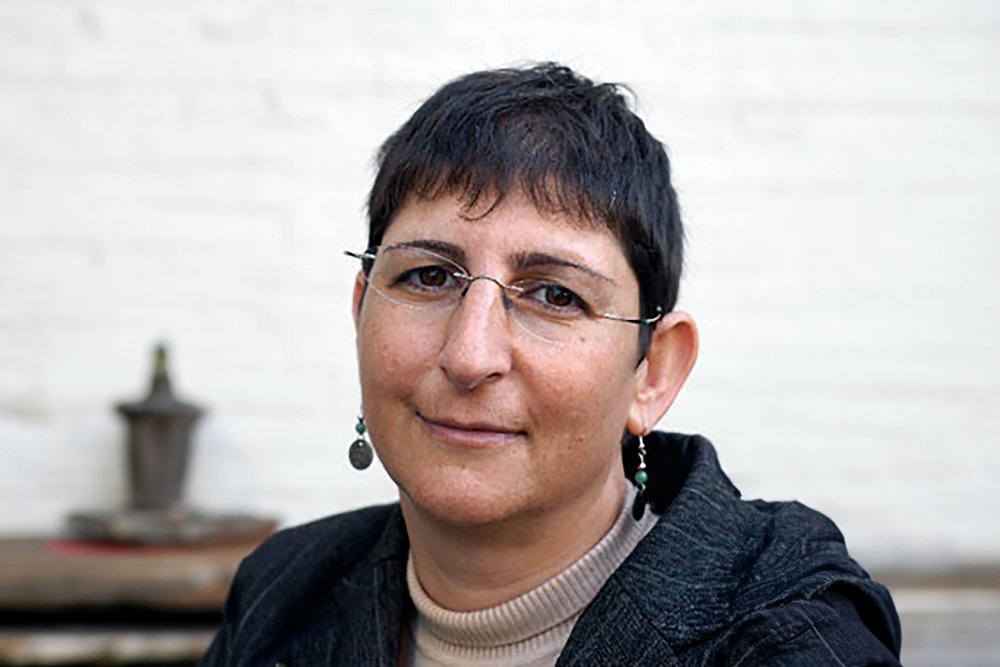On July 19, 2024, the International Court of Justice in The Hague rendered its advisory opinion on questions posed by the UN General Assembly regarding two legal questions about Israel’s occupation of the West Bank (including East Jerusalem) and Gaza Strip since 1967. The questions were:
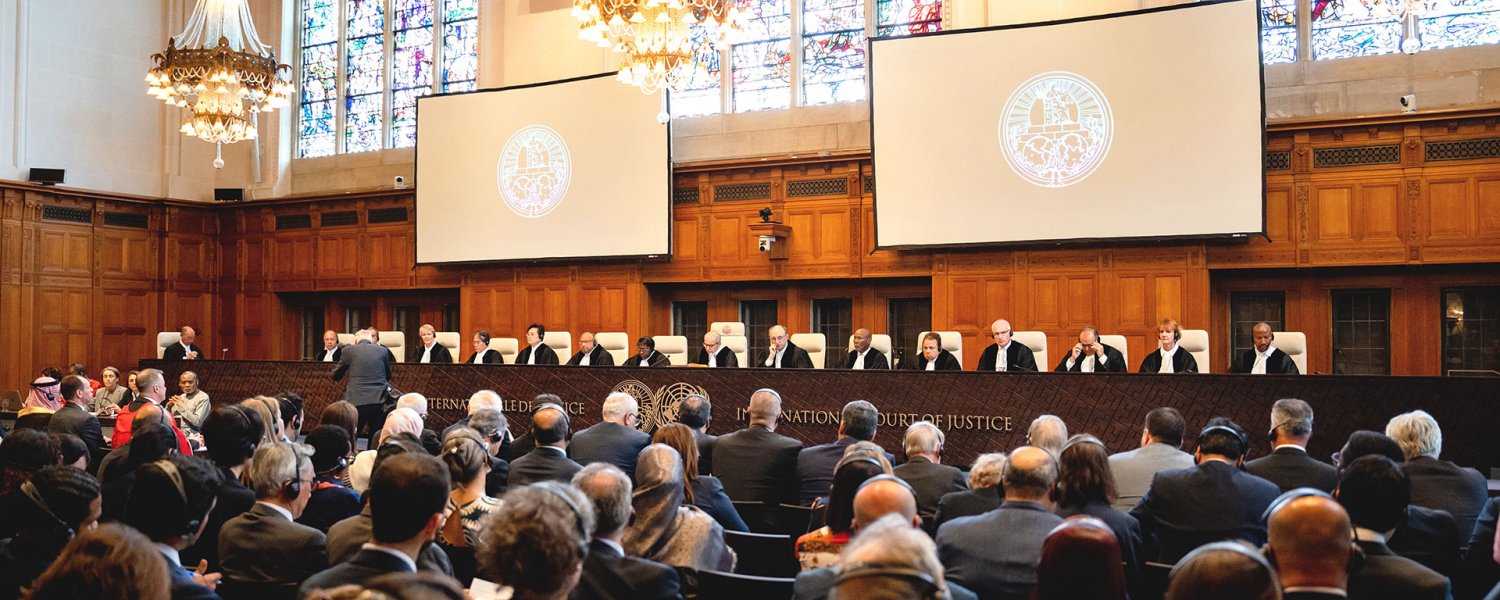
Credit:
Lina Selg/ANP/AFP via Getty Images
Palestinian Jerusalemites React to the Recent ICJ Ruling in The Hague
- What are the legal consequences arising from the ongoing violation by Israel of the right of the Palestinian people to self-determination, from its prolonged occupation, settlement and annexation of the Palestinian territory occupied since 1967 [including East Jerusalem], including measures aimed at altering the demographic composition, character and status of the Holy City of Jerusalem, and from its adoption of related discriminatory legislation and measures?
- How do the policies and practices of Israel referred to in paragraph 18 (a) above affect the legal status of the occupation, and what are the legal consequences that arise for all States and the United Nations from this status?
The court found that Israel’s continued presence in all of the territories occupied since 1967 (i.e., the West Bank, including East Jerusalem, the Golan Heights, and Gaza) is unlawful and must be ended “as soon as possible.”1
It found that Israel’s attempt to impose its sovereignty on East Jerusalem by extending its laws there is illegal. In a press release about the ruling, this finding was clarified as follows:
The Court considers that Israel is not entitled to sovereignty over or to exercise sovereign powers in any part of the Occupied Palestinian Territory on account of its occupation. Nor can Israel’s security concerns override the principle of the prohibition of the acquisition of territory by force.
The court further ruled that Israel is “under an obligation to cease immediately all new settlement activities and to evacuate all settlers from the Occupied Palestinian Territory,” as well as to provide “reparation for the damage caused to all natural or legal persons concerned.”2
The court stated that these findings make it incumbent upon states to act accordingly, by withholding all recognition of the situation as being legal and by refusing to “render aid or assistance in maintaining the situation created by the continued presence of the State of Israel in the Occupied Palestinian Territory.”
The advisory from the ICJ is a legal opinion provided by the court on questions of international law.
Advisory opinions reached by the ICJ are nonbinding but nonetheless highly influential on public opinion, international organizations, individual countries, and United Nations bodies and organizations.
We asked a number of political and community leaders in the East Jerusalem arena for their reactions to the ICJ’s ruling. We share them below.
Varsen Agabakian Shahin—Minister of State for Foreign Affairs, Palestinian Authority
We express our great satisfaction with what was stated in the advisory opinion regarding East Jerusalem, especially the repeated confirmation that it is an integral part of the occupied Palestinian Territory, and the comprehensive legal explanation of the illegality of all unilateral and illegal Israeli measures against it and its sanctities, and also affirmation of all relevant UN resolutions. We welcome the connection, and the emphasis many times on the unity of the land of the State of Palestine in the West Bank, including Jerusalem, and the Gaza Strip.
In turn, we will build on this opinion in raising the status of Jerusalem at the international level and calling on all countries to adhere to what was stated in the advisory opinion regarding it in its entirety and in detail, in text and content, and we will coordinate our steps in this regard with our Arab and Muslim brothers, the Christian world, and friends in the world.
Ziad Abu Zayyad—Publisher, Lawyer, and Former Minister of State in the Palestinian Authority
The opinion of the International Court of Justice has put everything in its correct perspective and has confirmed many of the facts that Israel had tried to cover up and to deceive public opinion about and to confuse the public about what is going on in the occupied territories. The decision established that East Jerusalem is part of the occupied Palestinian Territory like Gaza and the rest of the West Bank. The decision spoke about the illegality of settlements and that the applying of Israeli law on East Jerusalem is illegal.
The question is how we can translate the opinion of the ICJ on the ground to change the criminal occupation that continues on Palestinian ground.
The UN Security Council should adopt this legal opinion and Chapter VII should be invoked to force Israel to adhere to international law and end the occupation while supporting the right of self-determination for Palestinian people including creating their own independent state.
Munir Nusseibeh—Professor of International Law at Al-Quds University and Policy Member, al-Shabaka—the Palestinian Policy Network
In its historic advisory opinion, the International Court of Justice decided to accept its jurisdiction over the request of the United Nations General Assembly (UNGA) and to examine the legality of the Israeli occupation in the Palestinian territory it occupied since 1967. In this advisory opinion, it concluded that the Israeli occupation severely violates international law.
On the one hand, Israel demonstrated an intention to never end this occupation, breaching the legal boundaries that treat occupations as temporary measures only. Israel has illegally annexed East Jerusalem and constructed colonial settlements across the occupied territory. Furthermore, the court found that the regime that Israel has built in the occupied territory amounts to apartheid and racial segregation, which is a crime against humanity.
The court stipulated that Israel must end its occupation as quickly as possible, and that the UNGA must take measures to guarantee Israel’s abiding by international law. This cannot happen without sanctions, which is the peaceful way that the international community uses to enforce international law.
What we need to see now is a strong campaign within the General Assembly as well as other international organizations like the Arab League and the Organization of Islamic Cooperation to sanction Israel until the Palestinian people exercise their right to self-determination, receive the appropriate reparations, and Israel’s apartheid regime is fully dismantled.
Mahdi Abdul Hadi—Founder/Director of the Palestinian Academic Society for the Study of International Affairs (PASSIA), Jerusalem
The advisory opinion of the International Court of Justice is historic and represents a historic international responsibility. What is needed is the continuation of the popular movement around the world in order to press the UN Security Council and UN General Assembly to move regardless of the potential US veto.
Of course, we need a Palestinian movement as well that can clearly denounce the occupation.
As to Jerusalem and the holy places, the advisory opinion calling for a settlement freeze and declaring that the changes of the religious, historic, and legal status of al-Aqsa Mosque is welcomed.
Sahar Francis—Human Rights Lawyer and General Director, Addameer Prisoner Support and Human Rights Association
This is a very important decision in terms of determining the legal status of the city of Jerusalem and confirming the illegitimacy of the annexation law imposed by the occupation authorities, which means that all racist policies imposed on the people of Jerusalem over decades are invalid and require redress and compensation as well, from demolishing homes, withdrawing IDs, confiscating lands, and much more.

